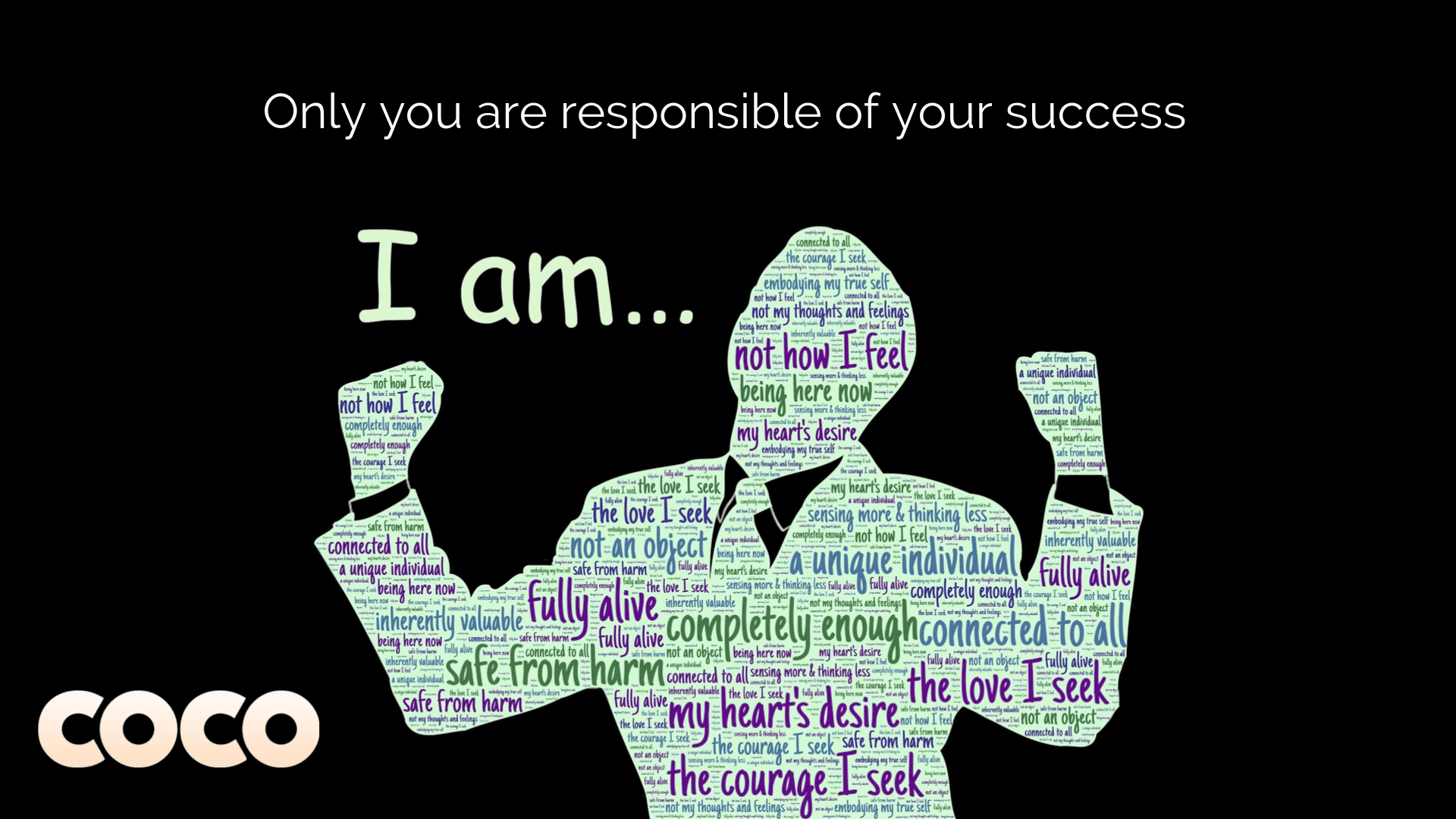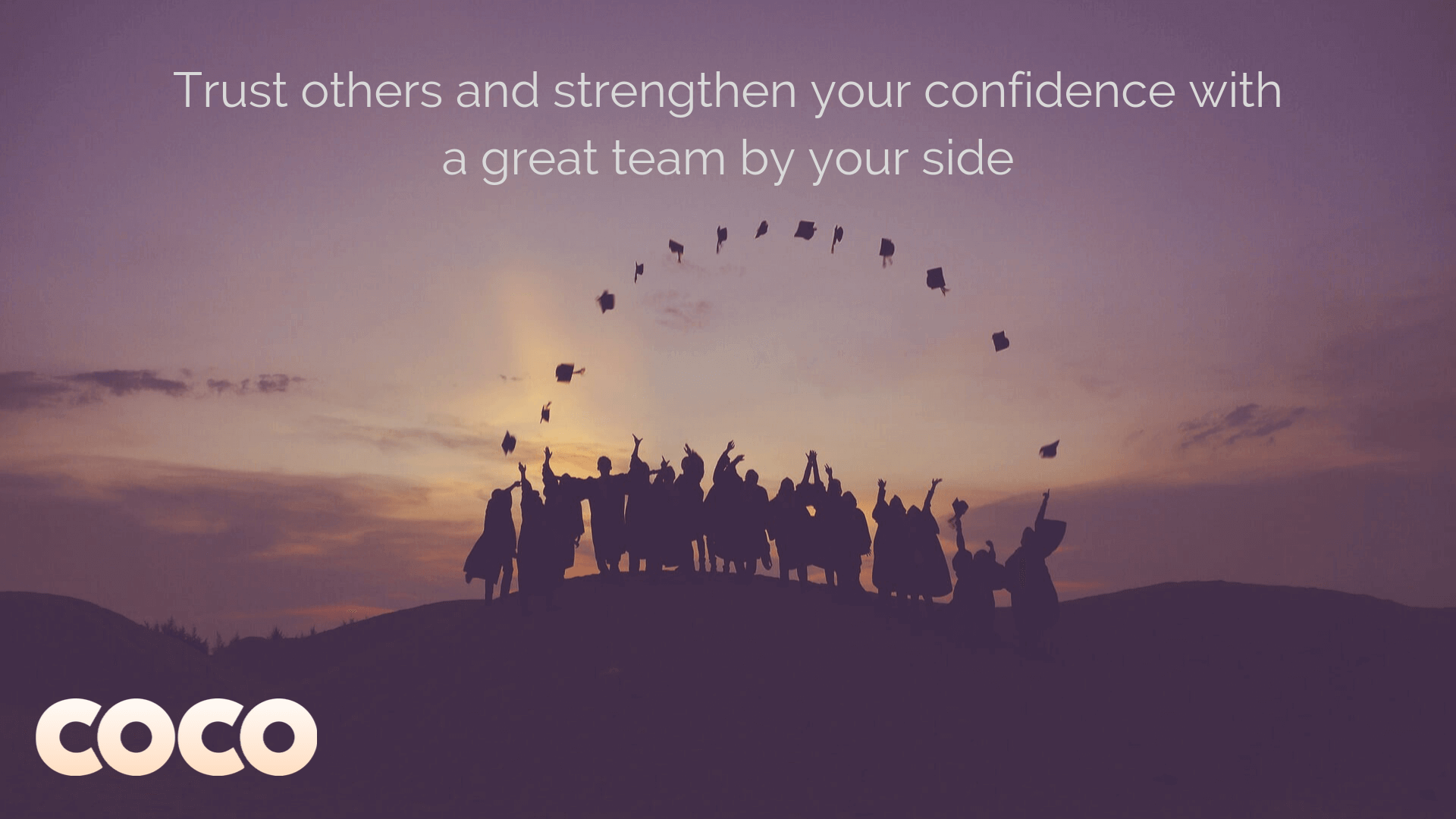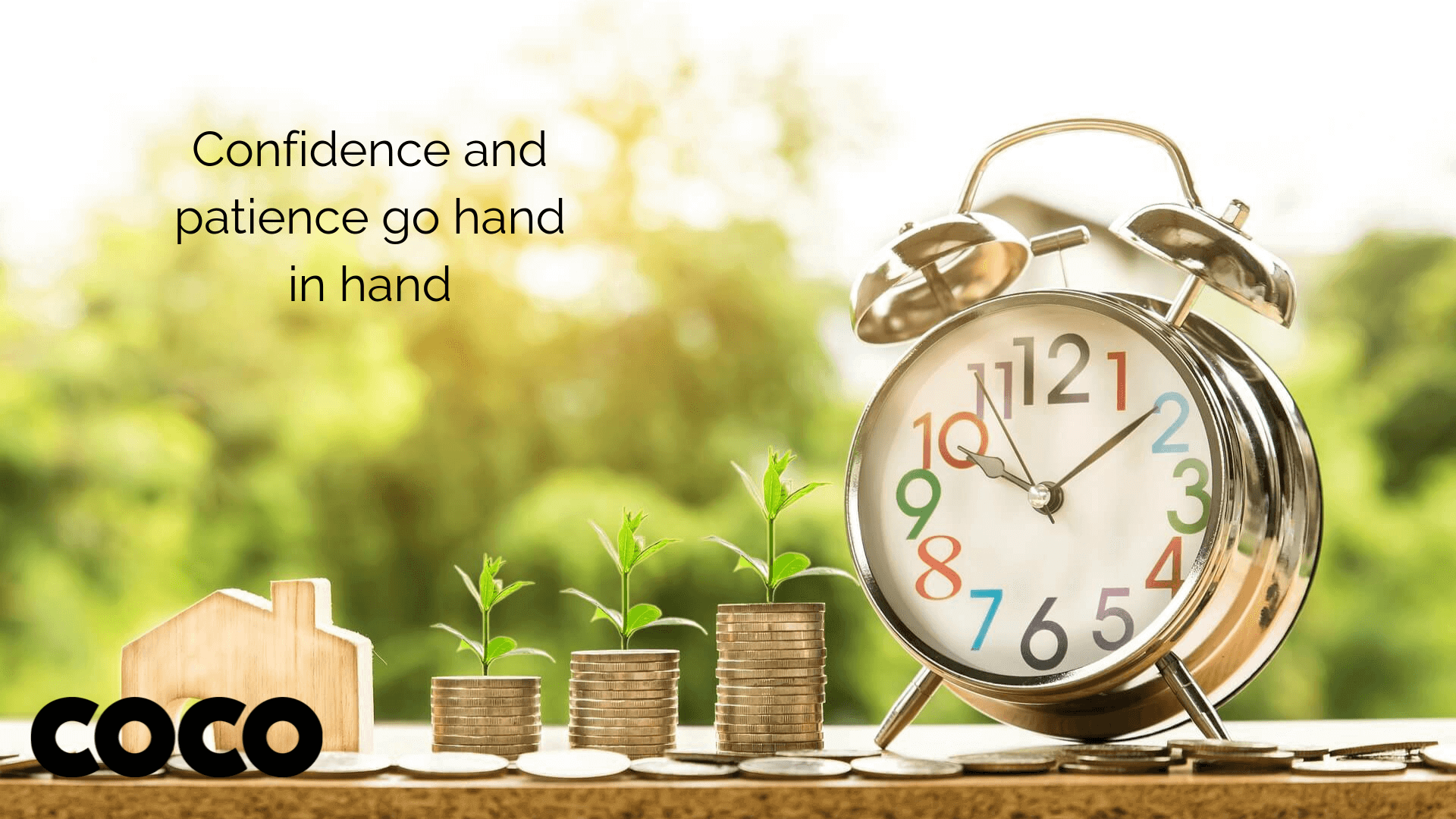Confidence CAN Make You Rich

How to build confidence… This is probably one of the most typed queries in search engines over the last years by people who are looking to improve their confidence. Duh… redundant! We found a question by a reader on the Internet asking for a view on this topic:
"Many of the proposed things make people feel better about themselves and actually help building self-confidence. However, I would be interested on reading a general input on this topic. Taking time out for your own plans and dreams, doing things another way than most other people and generally not necessarily “fitting in” can be quite hard with a low self-confidence".
Thing is, truer words have never been spoken. It’s near impossible to make time for your dreams, to break free from the traditional mold, and to truly be yourself, if you have low self-esteem and self-confidence.
As an aside, of course that some people make a strong distinction between self-esteem and self-confidence. In this new Coco Solution article, we use them interchangeably, even if there is a subtle but perhaps important difference…
The difference being whether you believe you’re worthy of respect from others (self-esteem) and whether you believe in yourself (self-confidence). In the end, both amount to the same thing, eventually, the actions we mention below give a boost to both self-esteem and self-confidence.

How to build confidence
Being self-confident has many benefits. It helps you perform better, get noticed and appreciated for your work, it gets you a promotion and a raise. It also gets you attention of desired people. To put it simply: it helps you get what you want in life.
On the other hand, shyness and lack of self-confidence can seriously sabotage your efforts and stop you from getting what you want and what you deserve. This is why we decided to dedicate a whole blog post to building your self-confidence.
You need to remember something. It’s a process. You can’t build self-confidence overnight. The following ways to do so will work best if applied all together and consistently over time. Confidence is not something that magically happens to you.
It’s a habit. And even though you know that you’ll need time and energy to create this new habit, the good news is that you can do. It is something under your control and dependent on you.
4 types of self-confidence
Confidence can be a tough thing to build up. We've put together some handy tips to help you out. If you're still having a hard time even after trying these self-help ideas, don't worry! We’ve also listed the ways you can find extra support and work on boosting your confidence with the help of others. Keep reading to discover how to build confidence.

1. Trusting others
While it's important to be cautious of others' intentions, you don't want to live in a bubble. If you find yourself having a hard time letting people into your life because you're having trust issues, here are 10 ways to trust others again:
- Learn the type of qualities you like in other people
- Take baby steps
- Be honest
- Know when to pull the plug
- Practice using boundaries
- Listen to your intuition
- Find the root of the problem
- Observe people's habits
- Recognize that there are different kinds of trust
- Remember that most people mean well
2. Self-confidence
The concept of self-confidence is commonly used as self-assurance in one's personal judgment, ability, power, etc. One's self confidence increases from experiences of having mastered particular activities. It is a positive belief that in the future one can generally accomplish what one wishes to do.
Although very similar, self-confidence is not the same as self-esteem, which is an evaluation of one's own worth, whereas self-confidence is more specifically trust in one's ability to achieve some goal, which one meta-analysis suggested is similar to generalization of self-efficacy.
3. Pseudo-confidence
There’s a fine line between genuine confidence and fake confidence. When someone crosses that line, their behavior becomes unattractive. Rather than appealing to others, the pseudo-confident person repels others. This person comes across as untrustworthy and phony. In order to know how to build confidence, keep reading.
Sadly, those who are merely acting confident (rather than being confident) seldom recognize the difference. Others see it in them before they see it in themselves. People with pseudo-confidence generally dismiss others’ reactions to them, saying things like “I don’t care what they think” or “They’re just jealous".
The bravado may bolster their spirits, but it also perpetuates the problem and distances others from them even more. After all, who wants to be minimized by someone who thinks of them in that manner?
Pseudo-confidence is actually encouraged in our society. The fake it ‘til you make it message reigns supreme. Plenty of people fake it and never really make it because they think the faking it is good enough.
So long as this prescription is doled out so loosely, many people will get stuck in this rut. Real confidence doesn’t require faking it. Those who are genuinely confident don’t need to fake it.
4. Emotional confidence
Knowing how our feelings work allows us to tame our temperament. The latest research into the body/mind/behaviour cycle and explore how we can control our body, mind and behaviour to have healthy relationships, happy selves and successful working lives.
Many who are emotionally highly-strung are given tips to soothe their sensitivity. In addition, an emotional healing strategy helps mending old and new emotional wounds. Moreover, harnessing your habits with positive strategies for runaway feelings and learning how to maintain emotional confidence is vital.

Advantages of self-confidence to starting a project
This topic on how to build confidence wouldn’t be complete if we don’t use that confidence for our own benefit. Thus, if you want to start a project, confidence plays a major role. Many people are insecure about their jobs.
To survive in today’s demanding workplace, it is important to build self-confidence. Not only does it give visibility to the person but also makes sure that his/her voice is heard. It is something which doesn’t happen overnight.
1. Resilience
One of the most popular topics in positive psychology (both in the field itself and in mainstream discussion of positive psychological concepts) is resilience. To some, resilience is a sort of “miracle drug” personality trait, something that can heal all wounds and right all wrongs.
While resilience may not be the end-all and be-all of personality traits, it’s such a hot topic for good reason: it is a wonderful trait to have, it is related to a plethora of positive outcomes, and, perhaps most important of all, it can be improved.
According to Psychology Today, “resilience is that ineffable quality that allows some people to be knocked down by life and come back stronger than ever. Rather than letting failure overcome them and drain their resolve, they find a way to rise from the ashes”.
2. Self-improvement
Another great way on how to build confidence is the next idea. Focusing on self-improvement presents many opportunities in life, like speaking at live events, writing for online publications or traveling the world. This can happen for anyone.
But in order for things to change in your life, in order to get where you want to be, you have to grow into the person who is ready for that change. Personal development is vital to your success.
The definition of self-improvement is pretty self-explanatory: self-improvement is the improvement of one's knowledge, status, or character by one's own efforts. It's the quest to make ourselves better in any and every facet of life.
3. Decision-making
Most of us face decisions of some kind on a daily basis and many of us wonder how we can improve our decision making skills so we can make clear, confident choices. Whether you're a CEO, manager, teacher, coach, professor or anything else, you want to make the best possible decisions.
In psychology, decision-making is regarded as the cognitive process resulting in the selection of a belief or a course of action among several alternative possibilities. Therefore, decision-making is the process of identifying and choosing alternatives based on the values, preferences and beliefs of the decision-maker. Every decision-making process produces a final choice, which may or may not prompt action.
Decision-making should be a two step process: the first step is gathering relevant information, and the second is deciding on the basis of what you've learned. Most people, however, are biased when it comes to information.
If you think you already know the answer, it's hard to take in new information and in the end most people have made up their mind before everything is even considered.

In short, confidence is attractive. People who exude genuine confidence appeal to and inspire others. Confidence gives these people an advantage in work and in personal relationships because their confidence is contagious.
When someone is confident in their own abilities, others respond by putting confidence in them, too. We hope that this article on how to build confidence has helped you.








